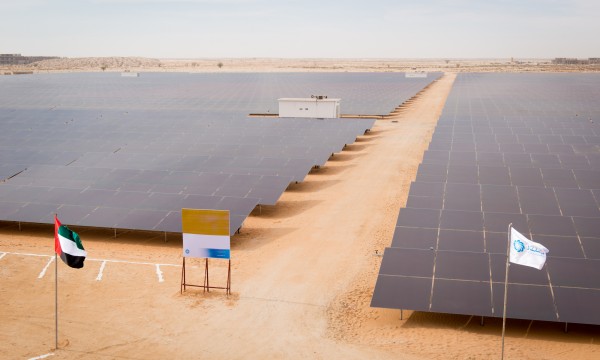The African Development Bank (ADB) has received $150 million in funding from the Green Climate Fund (GCF) – a United Nations body that assists developing countries in adapting to or mitigating climate change. The funding was finalized at a GCF board meeting held last week.
The funding will go towards the Desert to Power initiative, a project led by ADB that aims to build 10 GW of PV capacity across multiple countries in the Sahel region of Africa – providing grid-connected electricity to 160 million people, and off-grid power to a further 90 million.
The Sahel is a semi-arid region separating the Sahara Desert to the north from the savanna to the south. While the ADB initiative supports all 11 countries of the region, this round of funding from GCF will primarily go to projects in the G5 Sahel – a French-led cooperation between Burkina Faso, Chad, Mali, Mauritania and Niger.
Shot in the arm
“The Desert to Power G5 Sahel Facility is a significant shot in the arm for the Desert to Power initiative,” said ADB vice president Kevin Kariuki. “It will spur private sector investments in developing solar generation capacity in the G5 Sahel countries. This will provide an opportunity to realize the African Development Bank’s vision of the Desert to Power initiative as an integral part of the solution for tackling climate change in the Sahel. The timing of the approval is also perfect, coming just before COP26.”
The project is expected to mobilize almost $1 billion over a seven-year period, with projects divided into three categories: grid upgrades and storage, to allow for uptake of solar energy; financing for independent power producers to build new solar plants; and technical assistance to support the creation of stable environments for investment.
“We are proud to be part of this innovative project with our partners at the African Development Bank,” said GCF Deputy Executive Director Javier Manzanares. “The Desert to Power G5 Sahel Facility has the potential to make an enormous difference in people’s lives across the Sahel by tapping into the immense potential of solar energy, generating cheaper, reliable, and low-emission electricity. GCF’s catalytic financing alongside that of the African Development Bank and the private sector will together mobilise nearly $1 billion for this truly transformative project.”
This content is protected by copyright and may not be reused. If you want to cooperate with us and would like to reuse some of our content, please contact: editors@pv-magazine.com.




1 comment
By submitting this form you agree to pv magazine using your data for the purposes of publishing your comment.
Your personal data will only be disclosed or otherwise transmitted to third parties for the purposes of spam filtering or if this is necessary for technical maintenance of the website. Any other transfer to third parties will not take place unless this is justified on the basis of applicable data protection regulations or if pv magazine is legally obliged to do so.
You may revoke this consent at any time with effect for the future, in which case your personal data will be deleted immediately. Otherwise, your data will be deleted if pv magazine has processed your request or the purpose of data storage is fulfilled.
Further information on data privacy can be found in our Data Protection Policy.